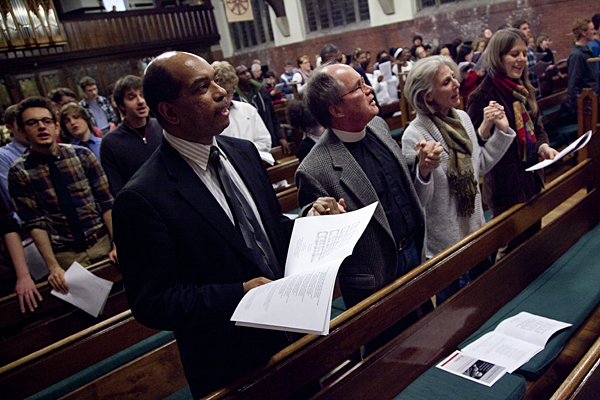
Bates commits to Maine 'green power' for its electricity
Bates will purchase its entire electricity supply from renewable energy sources in Maine, specifically biomass generating plants and small hydroelectric producers, President Elaine Tuttle Hansen has announced.
“Bates by itself is not considered a large user by electric power suppliers,” said Hansen. But working through Maine PowerOptions, an Augusta-based nonprofit purchasing consortium, “we increased our bargaining clout by teaming with hospitals, other nonprofit organizations and local governments. We know that we have a motivated campus community that will help us reduce electricity consumption as the college commits to using renewable energy from our own state.”
According to a study completed by Camille Parrish, learning associate in environmental studies at Bates, the new arrangement will reduce the college’s greenhouse gas emissions significantly — almost to their 1990 levels.
Beth Nagusky, director of Maine’s Office of Energy Independence and Security, applauded the move. “Maine has a huge renewable power resource,” she said. “Green power purchases by customers such as Bates provide a market for both existing and new renewable resources like hydroelectric, biomass, wind, solar, tidal and landfill-gas projects.”
“Generating power from plants in Maine is a win for the state’s economy and for the environment,” she said. “We have got to reduce our dependence on imported fossil fuels, and Bates is helping to lead the way.”
Hansen said that for several months, Bates Vice President for Finance and Administration Terry Beckmann and Facility Services administrators have been monitoring energy futures. In December, Bates will end a 27-month contract for electricity derived from a variety of sources, including non-renewable fossil fuels. In early November, when market conditions were favorable, Bates locked into a new five-year contract, paying an annual additional premium of $76,000 for the renewable Maine-generated electricity, beyond the $1.8 million that “non-green” electricity would have cost.
Based in Baltimore, Md., Constellation NewEnergy will supply Bates’ electricity under the new arrangement.
Hansen also announced that a search will begin for a new Bates environmental coordinator. As recommended by the college’s Environmental Task Force, this full-time position will help Bates continue to improve its sustainable practices such as energy conservation and recycling.
“The coordinator will engage students, faculty and staff in a comprehensive effort so that, as an institution and as individuals, the entire college community can practice better environmental stewardship,” Hansen said.
“Green power is more expensive, but we are challenging everyone in our community to do what they can to reduce needless energy use,” said Beckmann. “Turning off lights, closing windows and reporting leaky faucets all seem like little things. But together, they can significantly reduce energy costs.”
Beckmann said a more comprehensive list of energy-saving suggestions for the campus community will be e-mailed by the college’s Facility Services Department when students return from Thanksgiving break. “Remember, saving energy not only helps the budget but also reduces greenhouse gases, particularly when less oil is used. That’s a great benefit to the environment,” Beckmann said.




